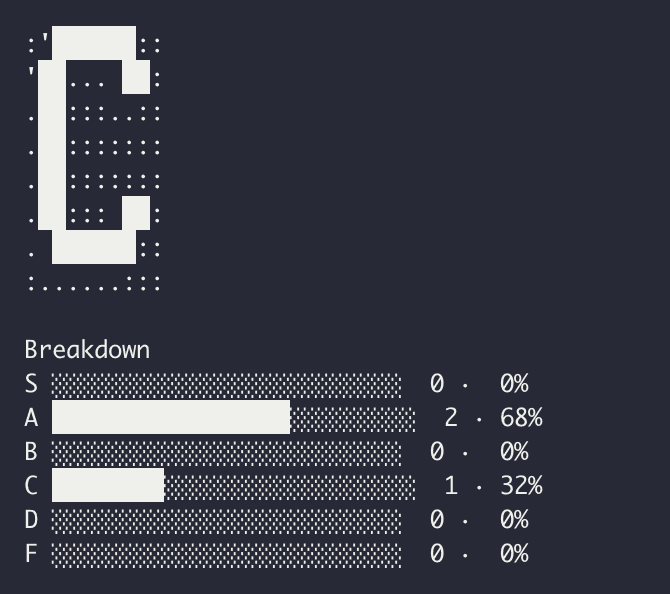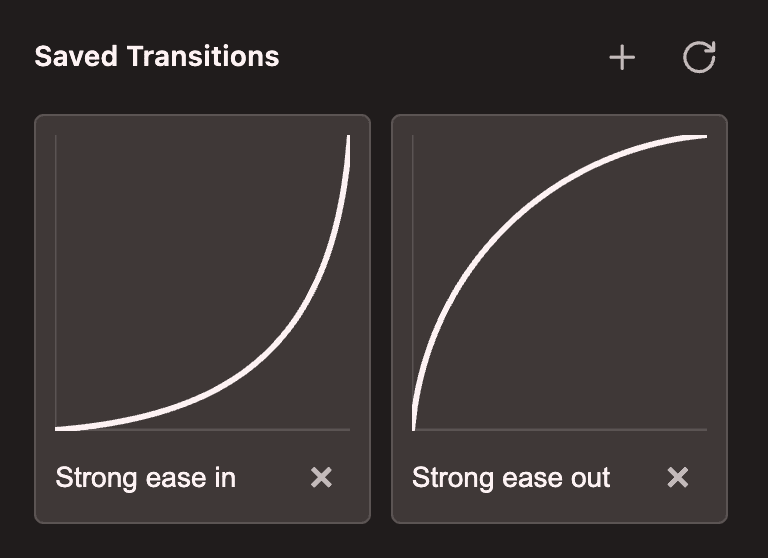Get started with Motion Studio
Motion Studio is a suite of AI and visual animation editing tools for VS Code, Cursor, and Windsurf.
AI Context: Upgrade your AI with the latest Motion documentation, custom ruleset, and access to over 330 examples and recommended patterns.
Performance Audit: Identify and fix slow animations with this AI skill.
Transition Editor: Real-time editing of Motion and CSS transitions.
CSS generation: Generate CSS springs - no animation library needed.
Upgrade to Motion+ for AI access to 330+ premium examples, the latest docs, and the full Transition Editor.
Install Motion Studio
One-click install for Cursor:
Motion Studio is also compatible with VS Code, Google Antigravity and more. See full installation guide.
Features
AI Context
LLMs are trained on data that is often out of data, or on low-quality Stack Overflow answers.
Motion Studio lets your LLM query the latest Motion docs, as well as the source code of 330+ premium examples for the best quality both visually and in your codebase.

Learn more about improving AI context
Performance Audit
Use the /motion-audit AI skill to run a performance audit on your CSS and Motion code. The report will return a plan that you or your LLM can use to immediately improve performance.

Learn more about improving your animation performance
Transition editing
Motion Studio enables real-time editing and preview of CSS and Motion transitions, without having to leave your editor. It currently supports easing curves, delay and duration, with spring support coming soon.

Your favourite transitions can be saved and reused anywhere.

Learn more about visual controls
Generate CSS springs
Motion Studio gives your AI editor the ability to generate CSS linear() easing curves to create springs or other custom easing curves, using real Motion code.
Generate a CSS spring that's quite bouncy
600ms linear(0, 0.0121 /* ... */)
Motion Studio is a suite of AI and visual animation editing tools for VS Code, Cursor, and Windsurf.
AI Context: Upgrade your AI with the latest Motion documentation, custom ruleset, and access to over 330 examples and recommended patterns.
Performance Audit: Identify and fix slow animations with this AI skill.
Transition Editor: Real-time editing of Motion and CSS transitions.
CSS generation: Generate CSS springs - no animation library needed.
Upgrade to Motion+ for AI access to 330+ premium examples, the latest docs, and the full Transition Editor.
Install Motion Studio
One-click install for Cursor:
Motion Studio is also compatible with VS Code, Google Antigravity and more. See full installation guide.
Features
AI Context
LLMs are trained on data that is often out of data, or on low-quality Stack Overflow answers.
Motion Studio lets your LLM query the latest Motion docs, as well as the source code of 330+ premium examples for the best quality both visually and in your codebase.

Learn more about improving AI context
Performance Audit
Use the /motion-audit AI skill to run a performance audit on your CSS and Motion code. The report will return a plan that you or your LLM can use to immediately improve performance.

Learn more about improving your animation performance
Transition editing
Motion Studio enables real-time editing and preview of CSS and Motion transitions, without having to leave your editor. It currently supports easing curves, delay and duration, with spring support coming soon.

Your favourite transitions can be saved and reused anywhere.

Learn more about visual controls
Generate CSS springs
Motion Studio gives your AI editor the ability to generate CSS linear() easing curves to create springs or other custom easing curves, using real Motion code.
Generate a CSS spring that's quite bouncy
600ms linear(0, 0.0121 /* ... */)
Motion Studio is a suite of AI and visual animation editing tools for VS Code, Cursor, and Windsurf.
AI Context: Upgrade your AI with the latest Motion documentation, custom ruleset, and access to over 330 examples and recommended patterns.
Performance Audit: Identify and fix slow animations with this AI skill.
Transition Editor: Real-time editing of Motion and CSS transitions.
CSS generation: Generate CSS springs - no animation library needed.
Upgrade to Motion+ for AI access to 330+ premium examples, the latest docs, and the full Transition Editor.
Install Motion Studio
One-click install for Cursor:
Motion Studio is also compatible with VS Code, Google Antigravity and more. See full installation guide.
Features
AI Context
LLMs are trained on data that is often out of data, or on low-quality Stack Overflow answers.
Motion Studio lets your LLM query the latest Motion docs, as well as the source code of 330+ premium examples for the best quality both visually and in your codebase.

Learn more about improving AI context
Performance Audit
Use the /motion-audit AI skill to run a performance audit on your CSS and Motion code. The report will return a plan that you or your LLM can use to immediately improve performance.

Learn more about improving your animation performance
Transition editing
Motion Studio enables real-time editing and preview of CSS and Motion transitions, without having to leave your editor. It currently supports easing curves, delay and duration, with spring support coming soon.

Your favourite transitions can be saved and reused anywhere.

Learn more about visual controls
Generate CSS springs
Motion Studio gives your AI editor the ability to generate CSS linear() easing curves to create springs or other custom easing curves, using real Motion code.
Generate a CSS spring that's quite bouncy
600ms linear(0, 0.0121 /* ... */)


